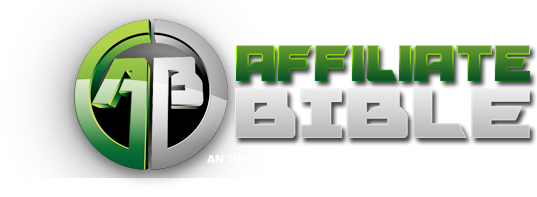The meaning of the word “blog” is something that has really evolved and changed over the years. Initially coined for people who would keep a diary online, it now covers so much more.
Blogs these days are used to entertain, to educate, to rant. Some people blog just for the hell of it, others blog with the purpose of making money. Some remain topical with movie reviews, others are there purely to sell links or acquire some backlinks.
Every website needs a blog.
This is something I’ve really discovered over the years – just how much better off my websites are having a “blog” section to them. There are a variety of benefits to having a blog, and I’m going to give a few examples here of why your website probably needs a blog. I’m seeing more and more sites, be it affiliate websites, or big multi-million dollar business websites go with an addition of a blog, and there are just so many different reasons as to why it can be a good idea. Let’s cover thise:
#1: Connect With The Audience.
One reason to start a blog could be to connect with your audience. This is something that depends on the type of website you actually run. For a website like Affiliate Bible here, it’s a no brainer. Everything here has a personal touch to it and I go with the “Dealer Dan” brand – so it just makes sense to have a blog.
For your standard affiliate site built mainly on search engine traffic it’s usually not why you would start a blog. But for a site with a personal touch like this it’s great. For here I usually go with the themed Thank _________ It’s Monday, with a mix of education and personal stories etc. I obviously have a lot of friends in the affiliate business, so it’s a good way to touch base with them.
#2: For Long Tail Keywords.
Basically content that you want people to see – but only via search engines. You don’t want people browsing your website and actually clicking on that content – you want to sell them that content instead.
For example, a website like SimpleForms.org. I want people to come to that website, and purchase online forms. I don’t want to confuse them with all these different categories for additional content and so on. Ideally, the only thing the user is focusing on is the forms.
So I could throw in a simple generic category “blog”, where I throw random but related content in there, dealing with long tail keywords. We sell landlord forms there, so I could have articles like “How much can I charge for rent?” and so on and so forth.
It’s great because I don’t need some big commitment on the front end of the website, and it allows me to cover a wide variety of long tail keywords. People generally accept a blog as “mostly random content” so it makes the work a lot easier too – if there is a long tail keyword that doesn’t warrant a long article I can throw it in with a mix of other topics and in the blogging world, that’s accepted.
#3: For Viral Marketing Content
Maybe it’s a top 10 list you came up with or a cool infographic. If your website is set up by category, you don’t really want to create an “infographic” category for just one infographic, or a “top 10 lists” section if you have only one top 10 list.
That’s where the /blog/ category comes in handy again – you’re able to put it in there without having to worry about the hierarchical structure of your website.
And yeah some of you might not care about that – but there’s some of us who are really anal about things like that. Again though – it’s a great place to put content that doesn’t belong anywhere else. Especially if you have a navigation bar that’s packed to the seams already.
#4: Links
Backlink purchasing, selling and trading is obviously a big thing on the internet and something most people are involved in. But one thing you will find is that a lot of people don’t like to give out links on their “money” pages. And often, you’ll find that a persons website is made up 100% of “money” pages.
I don’t blame them for that. If I have a page that gets a lot of traffic, I’d rather send it to an online casino via an affiliate link, not an online casino via a $100 link that they purchased, or to another affiliates website etc.
Again, that’s where the “blog” section comes in handy. It’s a great section for selling links, without risking losing your core audience to the link. The main purpose most people want from a link anyway is just the backlink itself – these days they rarely expect to get any traffic from it.
#5: Keep A Site Fresh / Easy Freaking Content
You’ve probably noticed a general theme – when I think of a “blog” for a website, other than for reason #1, it’s generally not an important part of your website. It’s used to help your website and business and so on – but it’s something where if 100% of my visitors don’t stumble upon it – I couldn’t care less.
That’s where easy content comes in. See – I fully believe in keeping a website fresh. For any website I care about, I will have 1-3 articles per week posted on it. I believe that having new content for the search engine robots is a good thing.
But depending on your website, it can be like squeezing blood from a stone. For a website that deals with a topic like Multi Card Keno for example – well there’s only so much you can actually write about Multi Card Keno. And you can expand it as much as you want – but eventually it becomes a real struggle to write new content.
If you’ve ever ran a niche website, be it for a particular game or a specific poker room then you know how tough that can be.
That’s where the “blog” category comes in. I use that to keep the site fresh and growing in quantity of pages, but with content that I know very few people actually care about.
For example – I do “Keno Scratch Card Blogs” there. Here’s what I do – I go to the convenience store, and I buy two scratch cards. One is a Keno scratch card, and the other will be a random scratch card. Then I take photographs of the cards as I scratch them, and blog about it.
Enthralling, right? Here’s an example.
But it’s still serving the purpose I want – it’s easy freaking content AND it’s on topic and related to the site. And it can even serve a third purpose of actually bringing in some long-tail traffic.
If you’re struggling for content for an existing website, and bashing your head when it comes to planning a site map – consider adding that /blog/ section.
It really does open your website up to a world of possibilities.
All beneficial.

 Dealer Dan, pictured here with WWE Superstar Mick Foley, has been in internet marketing since 1996. He likes hugs, long walks on the beach, and making money while wearing his jammy jams. For more information, you can read all
Dealer Dan, pictured here with WWE Superstar Mick Foley, has been in internet marketing since 1996. He likes hugs, long walks on the beach, and making money while wearing his jammy jams. For more information, you can read all 












